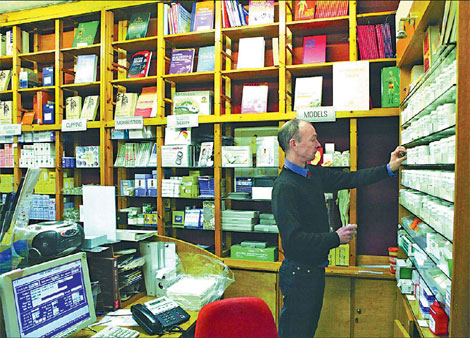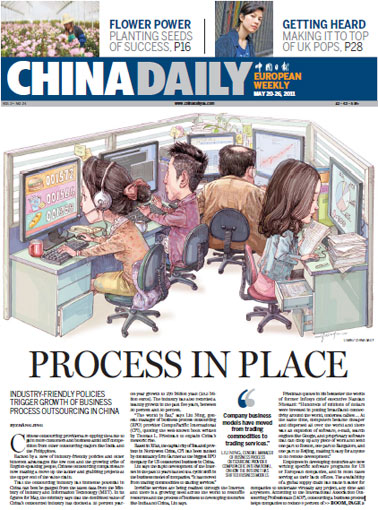Health
A bitter pill to swallow
Updated: 2011-05-17 07:52
By Zhang Haizhou (China Daily)
|
The AcuMedic Center in London is the biggest TCM shop in the United Kingdom. Xu Yanhua / For China Daily |
Uneasy traditional medicine practitioners see light at end of tunnel in new UK regulations. Zhang Haizhou reports from London.
Tucked away in the busy alleyways of Camden High Street in London is AcuMedic, a traditional Chinese medicine (TCM) center that has been making waves over the years. Set up in 1972, AcuMedic is the biggest TCM shop in the United Kingdom and has under its wings several departments, a full-fledged clinic with consultation rooms, a bookstore that gives insight into TCM, a shop that sells Chinese health products like green tea and dried chrysanthemum, and a pharmacy that sells herbal medicines.
Mei Man-fong, the founder of AcuMedic, who says he is in his 60s but looks much younger, settles down for his interview with a cup of green tea.
He says that he owes his sprightly appearance to TCM.
Mei says that about 500 patients visit the center every week, with 250,000 registered patients to date.
His most famous patient was the late Princess Diana Spencer who visited the center in the 1990s under the name of "Mrs Wales" for acupuncture treatment to relieve stress.
Recalling those years, Mei says Diana's visit was a springboard for TCM clinics in Britain.
But the years of steady growth may soon disappear if the new European Union (EU) directive on herbal medicines comes into being.
Under the EU's Traditional Herbal Medicinal Products Directive (THMPD), herbal remedies will only be available on prescription from practitioners and all over-the-counter medications need to be registered and approved by the Medicines and Healthcare products Regulatory Agency (MHRA).
The MHRA is a British government agency responsible for ensuring that all medicines and medical devices are safe.
"If THMPD is fully implemented, TCM will face huge obstacles," says Mei, adding AcuMedic sells more than 129 Chinese herbal medications.
Richard Woodfield, the MHRA's head of herbal medicine policy, said in a recent interview that the legislation is important as until now, consumers had no clue whether the medications were safe for use.
TCM practitioners, however, feel that the procedures are too complicated and due to the extensive quality checks of the ingredients, many Chinese herbal products may not be registered by MHRA.
"The procedures are quite exhaustive. It extends to quality assurance. And the more herbs you have in a product, the more complicated it becomes," says Michael McIntyre, chairman of the European Herbal & Traditional Medicine Practitioners Association.
"That is one reason ... why THMPD is an unsuitable vehicle for Chinese traditional medicine. Many TCM products have six or eight herbs and in some cases up to 14 herbs," McIntyre says.
Liuwei Dihuang capsules, a classic TCM remedy from the Song Dynasty (960-1279) era, is one of the most popular remedies in the UK market for kidney nourishment. But the capsules have six herbs in them and each herb may in turn contain several chemical ingredients. With such a complex structure, getting the approval and registration can be a time consuming and expensive process.
"There are also several other reasons as to why THMPD is not a suitable vehicle, or a suitable law, for TCM.
"TCM is not like Western medicine. You can't just say that you have a headache and pop a painkiller. It is a problem that needs to be checked before medication is given. Even if there is strict quality control, how does one market the products," he says, adding THPMD is not suitable for legislating Chinese medicines.
THPMD first became a law in the UK in 2004. McIntyre says that few people paid attention to it at that time due to the seven-year transition period.
Products registered under the new dispensation have been "very limited" till now, say British media reports, "with just 50 herbs included". Not a single Chinese medicine product has been registered.
Shen Huijun, president of the Association of Traditional Chinese Medicine (ATCM) in the UK, however, feels that all is not lost for the TCM sector even if the new laws come into effect.
In the UK market, according to Shen, acupuncture accounts for 60 percent of the sector, while herbal medicines constitute the rest.
Even when THMPD is fully implemented, only the industrially manufactured herbal products will be banned. They only account for about a quarter of all the Chinese herbal medicines in the market. The sale of loose herbs and other self-made products will not face any restrictions, he says.
Shen says there is "no need for retailers to withdraw manufactured products immediately, as retail sales are allowed till the shelf life of the products expire".
At the London branch of Tongrentang, a Beijing-based time-honored TCM brand and the biggest TCM producer in China, it is business as usual. Employees at the facility say that they have so far not received any notice to withdraw products or make any significant changes.
Over 150 Chinese herbal medicine remedies, mainly those for curing depression, gynecology and skin diseases, are popular in the UK. Shen, however, admits that some TCM product pharmacies may go out of business when THPMD is fully effective. "But the sector will survive," he says.
Even as THPMD clouds gather, TCM practitioners are busy looking for new strategies to continue their business.
Another development that may augur well for the industry is expected to come next year. From 2012, the British government plans to introduce additional statutory regulations for all herbal medicine practitioners and will be enforced by the Health Professions Council (HPC). The new rules intend to give herbal therapists licenses to prescribe unlicensed herbal medicines that have not been registered under THMPD.
"We initially thought that there was no hope until the HPC registration for herbal medicine practitioners was launched. Now, we feel that there's a ray of hope," Mei says.
But with HPC registrations not slated to start until April 2012, the intervening period may be tough for TCM pharmacies, Mei says.
But the important thing is that the new dispensation means that TCM practitioners will finally get legal status in the UK, says Mei, who has been fighting for a decade to push TCM into the mainstream.
There are about 2,000 TCM clinics and practitioners in the UK. Currently, anyone, including those without academic training, can open a clinic and call themselves a TCM doctor.
The House of Lords in November 2001 submitted a report on complimentary medicine and acupuncture to the government, marking the start of the effort to legally regulate TCM and other herbal medicine practitioners. The HPC was founded a year later.
On Feb 16, 2011, British Health Secretary Andrew Lansley reiterated his government's decision to enforce the regulation from April 2012.
"It will no longer be legal for herbal practitioners in the UK to source unlicensed manufactured herbal medicines for their patients as THMPD takes full effect in May," Lansley said in a written statement to Parliament. "This Government wishes to ensure that the public can continue to have access to these products."
"The major roadblock for TCM practitioners would be their ability to master English and it could finally tip the scales for an HPC registration," Shen says.
A key criterion of HPC registration is that all TCM practitioners should achieve a score of 6.5 in the International English Language Testing System (IELTS). That score is equivalent to the entry requirement for master's degrees in most British universities.
Shen feels that over 70 percent of ATCM's 740 members, who are all well-trained TCM doctors, will not be able to achieve that score, especially the older ones. "It's impossible for them to learn English at their ages."
The ATCM, one of the oldest and biggest TCM practitioners' organization in the UK, is in talks with the HPC to lower the English score threshold.
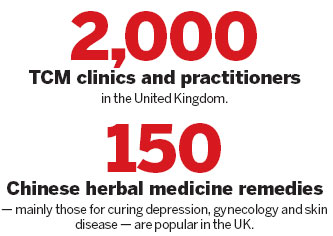
E-paper
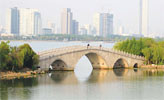
Green works
Wuxi becomes 'test case' for facing country's environmental challenges
Preview of the coming issue
The global rise of Chinese brands
China-EU trade on solid ground
Specials

The song dynasty
There are MORE THAN 300 types of Chinese operas but two POPULAR varieties are major standouts
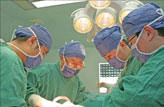
Cut above the rest
One of the world's oldest surgeons has performed more than 14,000 operations
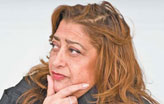
From the ground up
Architect of Guangzhou Opera House has many projects under way, including 2012 Olympics.
